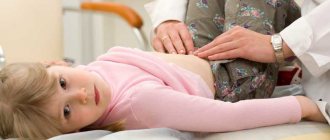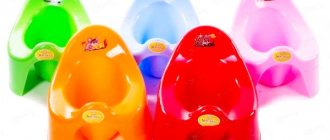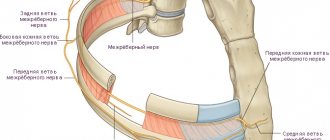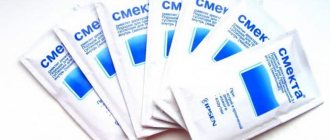From birth, parents take care of the health of their child, creating all the necessary conditions in which he will fully grow and develop. Considering the modern pace of life, the presence of a large number of diseases of different etiologies and localizations, it is very difficult to protect your child, but at the same time, attentive and caring parents will not miss the moment when their child’s health deteriorates or health problems appear. A common symptom occurring in children of all ages is nausea, which can occur at any time of the day and be caused by multiple causes.
The child is sick. What do doctors say?
If your child feels sick, you should consult a doctor. This is what all pediatricians unanimously say. It is worth noting that nausea is not an independent disease. In most cases, this is just a symptom of some pathology. In this case, the disease may have additional manifestations. Some of them require immediate help. That is why it is worth carefully monitoring the baby in this condition and, if necessary, calling an ambulance.
Doctors say that weakness and nausea cannot be correctly identified by the baby. Children under 7-9 years old simply cannot describe this condition. The children say that something hurts them, but they cannot correctly formulate a story about how they feel. Nausea in children is often accompanied by vomiting. This is the so-called continuation of the development of the pathological symptom. Let's try to figure out why sometimes a child feels sick and how you can cope with this unpleasant symptom.
Prevention
To protect a child from nausea, it is necessary to prevent diseases that can cause it.
Doctors recommend adhering to the following general recommendations to prevent the development of an unpleasant condition:
Nausea is an unpleasant feeling that occurs in children of any age. Having found out the reason for its development, parents can adequately help their child. There are many ways to eliminate painful symptoms in the epigastrium. But only a doctor should select them. Do not forget that nausea in a child is a serious reason to see a doctor. After all, sometimes it is through nausea that the baby’s body “screams” for help!
Motion sickness or seasickness
Often a child gets sick in the car. The symptom can also manifest itself during a sea voyage. The reason for this phenomenon is banal motion sickness. It develops due to underdevelopment of the vestibular apparatus. It is worth noting that in many children this pathology goes away on its own over time.
It is useless to treat this pathology in most cases. However, it is worth seeking advice from an otolaryngologist. It is this specialist who deals with problems of the vestibular apparatus. In most cases, when dealing with motion sickness in transport, it is enough for parents to follow some rules. It is not recommended to feed your baby heavily before traveling. Avoid fatty and heavy foods. Place your child in the front or (if this is not possible) in the center back. Ask your baby not to look around. Give your baby a drink periodically. Mints also help. Among the drugs for motion sickness, one can highlight the tablets “Dramina”, “Aviamore” and others. Most medications are taken immediately before travel, and not during an attack of nausea.
Treatment options
Before treating nausea, it is important to make sure that the child does not have a serious pathology. Therefore, if your son or daughter has frequent complaints about a painful phenomenon in the morning or at other times of the day, the first thing you should do is consult a doctor.
In the absence of serious reasons for concern, both medications and traditional medicine can be used to alleviate the child’s condition, along with dietary nutrition.
Dietary recommendations
A diet for a tendency to nausea is prescribed according to the underlying disease.
Following these principles will help reduce attacks of nausea:
- regular meals;
- exclusion or limitation of fatty and fried foods;
- fractional meals in small portions;
- food is lukewarm;
- drinking should be sufficient, you need to drink in small sips, often, preferably chilled drinks (fruit drinks, compotes, diluted juices);
- feeding by appetite, not by force;
- food is complete, easily digestible, fortified;
- excluding dry snacks, “stall” food (crackers, chips, candy bars, soda), limiting fast food.
Drug therapy
The following medications are recommended to relieve nausea:
- Medicines for motion sickness:
- Scopolamine (in the form of a motion sickness patch, Aeron) - for children over 7 years old;
- Prokinetics (Aviomarin, Dramina, Ciel);
- Syrups for young children (Riabal, No-spasm).
- Antispasmodics (No-shpa, Papaverine).
- Enterosorbents (Smecta, Enterosgel).
- Means that improve gastrointestinal motility (Motilak, Motilium, Cerucal).
- Agents that reduce the aggressive effect of hydrochloric acid (Almagel, Phosphalugel).
- Sedatives (Motherwort, Phenibut, Valerian).
Medicines for nausea - photos
Folk remedies
To reduce the symptoms of nausea, you can use non-traditional treatment:
- Dissolve slices of fresh lemon or pieces of ice in your mouth.
- Dissolve 1 tsp in 1 glass of water. soda and drink if you feel nauseous.
- Drink peppermint infusion 3 times a day, 1 tbsp. l. Leaves (1 tablespoon) pour a glass of boiling water. Leave in a warm place for 2 hours. Strain before use.
- Use a medicinal decoction of dill seeds for nausea. Boil raw materials (1 tsp) in a glass of boiling water. Strain and take half a glass.
- Drink lemon balm infusion. Pour boiling water (1 tbsp) over the grass (4 tsp). Leave for 4 hours. Strain and take half a glass, 4 times.
Additional events
In addition to medication and diet therapy, parents are advised to follow a few more advice from doctors:
- A set of general strengthening physical exercises helps reduce nausea. However, it is necessary to exclude bending and excessive abdominal tension from gymnastics.
- The child should spend a lot of time outdoors. Saturation of the body with oxygen has a beneficial effect on the functioning of all systems.
- Emotional and mental fatigue is excluded. Perhaps the child is overly busy in different sections. It is recommended to review his daily routine. If possible, you should give up some additional activities.
Poisoning
Sometimes it happens that the child feels nauseous and has a stomach ache. The cause in this case is poisoning. It is worth noting that it may vary. If the baby has consumed a stale product, the development of symptoms occurs almost instantly. Poisoning can also occur due to the use of chemicals or medications. Check to see if your baby may have ingested illegal substances.
Treatment in this case depends entirely on the severity of the pathology. If symptoms are mild, correction can be done at home. The child is prescribed medications - sorbents, as well as plenty of fluids. This type of medicine includes “Polysorb”, “Smecta”, “Enterosgel” and so on. They should be taken separately from food and other medications. In severe cases of the disease, hospitalization makes sense. In this case, the child undergoes gastric lavage and a course of drip administration of glucose and saline solution.
Nausea and vomiting
If nausea is accompanied by vomiting, then the baby should be placed in such a position that he does not choke on vomit (which is especially dangerous for an infant or a one-year-old child due to the imperfection of the digestive system). To do this, it is recommended that the baby be placed in a semi-lying position on his side.
Sometimes nausea is caused by eating poor quality foods.
In this case, it is necessary to induce vomiting and rinse the stomach to reduce the concentration of toxins in the body. In children under 6 years of age, you should not induce vomiting yourself, because... there is a risk of re-swallowing vomit. It is also recommended to give the child sorbents that help absorb toxins and destroy pathogenic microflora:
- Activated carbon.
- White coal.
- Enterosgel.
At the same time, dehydration of the body should not be allowed, so it is recommended to give the child a little mineral water.
If vomiting is accompanied by painful stomach spasms and the release of bile (this is usually observed after frequent vomiting, while there is practically no vomit), then it’s time to give the baby an antiemetic drug:
- Unorm;
- No-Spasm;
- Motilium.
Medicines stop the gag reflex, reduce the feeling of nausea and alleviate the child’s general condition. The dosage should be prescribed by a doctor, taking into account the age of the baby.
Infection or viral pathology
Nausea and diarrhea in a child may occur due to infection. It is often an airborne virus or a bacteria acquired through dirty hands. At the same time, the described symptoms may be accompanied by a rise in body temperature. Weakness, nausea and vomiting with loose stools must be corrected. Otherwise, there is a risk of serious complications.
Vomiting, nausea and diarrhea often lead to dehydration. That is why, when this pathology occurs, it is necessary to give the baby a lot of water. If necessary, use the drug "Regidron". This is a powder that dissolves in drinking water. It helps restore salt balance in the patient's body. For diarrhea, you can use the drug Imodium or rice water. Viral pathology necessarily requires appropriate therapy. Thus, the child is prescribed medications “Ergoferon”, “Interferon”, “Isoprinosine” and others. For a bacterial infection, it is necessary to use broad-spectrum antimicrobial compounds, for example, Azithromycin, Amoxicillin, and so on.
Nausea and fever
These 2 symptoms may indicate a bacterial or viral infection in the body (for example, sore throat, flu, etc.), poisoning, intestinal infection, and much more. Before the doctor arrives, it is recommended to alleviate the baby’s condition with an antipyretic drug.
It is important that the dosage form of the drug is selected correctly. There are suppositories, syrups, tablets, and injection solutions.
- if a child has diarrhea, then you should stop using antipyretic suppositories;
- If you feel like vomiting, it is better not to use tablets or syrup.
Injection solutions are a rather painful way of administering medicine to a child, but if the use of other dosage forms is impossible, then this option remains the only one and at the same time the fastest acting. If you do not have medical education or skills to perform intramuscular injections, you must entrust the manipulation to medical personnel.
The most popular antipyretics for children are:
- Based on paracetamol (Panadol, Paracetamol, Cefekon D, Calpol, etc.). The medications provide effective antipyretic and, to a lesser extent, analgesic effects and act within 30-50 minutes. They are characterized by minimal toxicity.
- Based on ibuprofen (Nurofen, Ibuprofen, Ibufen). Medicines belong to NSAIDs and provide anti-inflammatory, antipyretic, and analgesic effects.
- Based on nimesulide (Nise, Nimulid). Medicines are NSAIDs, the effect is similar to Ibuprofen. They act faster and longer than Paracetamol, but are more toxic.
Intracranial pressure
If a child feels sick in the morning, this may be a symptom of a neurological pathology. The main symptom in this case is headache and fatigue. Such an ailment must be corrected. Otherwise, unpleasant consequences arise.
Contact a neurologist and get examined. Most likely, the doctor will prescribe neurosonography. Depending on the result, additional tests may be needed. Treatment of pathology in most cases is complex. So, the doctor prescribes nootropics that correct cerebral circulation, for example, Trental, Gliatilin, Piracetam and others. At the same time, the baby is prescribed sedative medications (Phenibut, Tenoten, Valerian). Be sure to take vitamin complexes during treatment (“Magnerot”, “Magnelis”, “Neuromultivit”). Remember that all of these drugs can be used only after consulting a specialist. Many of them are selected according to the age and weight of the baby.
Symptoms of nausea attacks in a child
Nausea can be observed periodically or be permanent; its physiological manifestations are provoked by both external factors and internal ones - pathological changes in the child’s body. Malaise is often accompanied by other symptoms:
- Increased salivation;
- Pale face, cold feet and hands;
- Belching;
- Heartburn;
- Dizziness;
- Perspiration;
- Bloating;
- Prolonged lack of appetite;
- Discomfort in the epigastric region;
- Weakness, drowsiness and lethargy.
To establish a diagnosis of what causes nausea, it is necessary to donate blood for general and biochemical tests, feces - to exclude helminthic infestation and the presence of other microorganisms, and make a coprogram to determine the condition and presence of pathologies in the gastrointestinal tract. If necessary, children are prescribed an ultrasound of the abdominal organs, gastroscopy, computed tomography or x-ray of the stomach and intestines as an alternative to endoscopy.
Stressful situation
If a child feels nauseous (there is no temperature), then the cause may be stress or fear. Doctors say that this is how the body’s protective reaction manifests itself. This situation does not require any treatment. However, there is a way to help the baby and alleviate his condition.
Take a small paper bag. If you do not have this device, you can use polyethylene. Give the instrument to the child and ask him to breathe into it. Within a few minutes the baby will experience noticeable relief. The principle of operation of such assistance is as follows. The child exhales carbon dioxide and consumes oxygen when inhaling. If space is limited, the baby will breathe the released carbon dioxide. As a result, nausea disappears.
Pathology requiring surgical intervention
Nausea in a child can become a symptom of a pathology that cannot be corrected at home. Such diseases include pancreatitis, appendicitis, cholecystitis, strangulated hernia, and so on. At the same time, these diseases may have the following symptoms: vomiting, weakness, diarrhea or constipation, abdominal pain, fever, weakness, and so on. Any delay and lack of timely assistance can lead to unpleasant complications.
Treatment of most of these diseases requires immediate medical intervention. This is usually a standard operation performed under general anesthesia. After such an intervention, it is necessary to follow the doctor’s instructions and adhere to a certain diet. Often, medicinal methods are required that will become prophylactic and prevent the re-development of the pathology.
What should I do?
You should not feed your baby immediately after vomiting. We need to put him to bed and give him fluids in small increments until the doctor arrives. If the child’s condition is not critical, there is no need to urgently hospitalize him; he should undergo blood and urine tests for high sugar levels or the presence of acetone, undergo an ultrasound of the internal organs, and a computed tomography scan of the brain.
In mild cases, bed rest and a special diet are indicated. The doctor prescribes the necessary medications.
In any case, when a child vomits, including in the morning, you should carefully consider his condition and provide first aid. If you experience frequent vomiting with clear suspicious symptoms, you should immediately seek medical help.
Summarizing
Now you know why a child may experience nausea. You also learned the basic ways to deal with unpleasant manifestations. Remember that before you start making adjustments, you should definitely clarify the cause of the problem. In some cases, this can only be done by a specialist. Contact your pediatrician and get qualified advice. Only after this proceed to the prescribed treatment. Good health to your baby!
Morning sickness is a very unpleasant sensation that appears for various reasons. Such a condition, as a rule, signals physiological disorders in the body or pregnancy. In any case, the occurrence of such discomfort should alert you, so you need to know why you feel sick on an empty stomach in the morning.
This painful feeling can end in vomiting and ruin your mood all day. In addition, nausea is often accompanied by diarrhea and high fever.
Morning sickness problem
Feeling sick in the morning in children of all ages can be caused by a number of reasons.
Younger children are not yet able to complain and explain what exactly bothers them. Parents may suspect poor health based on the following symptoms:
- Kids become capricious and lethargic.
- They refuse breakfast.
- Children experience drooling.
- Children are characterized by increased weakness.
- They can point to the tummy and pull the legs towards it.
Older children and teenagers accurately describe their feelings.
Complaints of morning sickness in a child of any age cannot be ignored . This is a rather alarming symptom. Perhaps it indicates the development of a serious illness or deterioration of the condition due to some pathology.
The mechanism of development of nausea in the morning
To understand the mechanism of development of nausea, you need to understand which body structures are responsible for the occurrence of this sensation. As you know, nausea is a precursor to vomiting. But it can also occur as a separate symptom. Vomiting, in turn, is a protective reflex. By regurgitating gastric contents, the body tries to expel toxic substances.
Their occurrence is based on the regulatory activity of the nervous system. There are two zones responsible for these phenomena:
- The first zone is the vomiting center, located in the medulla oblongata.
- The second is the receptor zone, in the area of the bottom of the fourth ventricle of the brain.
Impulses coming from different organs stimulate the activity of these zones. It is as a result of such stimulation that an unpleasant sensation occurs - nausea.
Main types
Thus, nausea in origin can be:
- Central. With irritation of the vomiting center (psychogenic). It appears in diseases of the structures of the central nervous system.
- Reflex. When irritating impulses come from various organs.
- Toxic. When reflexogenic centers are irritated by poisons, toxins, or drugs in the blood.
Doctor Komarovsky about the disease - video
Morning sickness as a symptom of certain pathologies
Before you understand why you feel sick on an empty stomach in the morning, you need to consider all the possible reasons. After all, a similar condition occurs in many diseases. For example, with inflammation of the inner lining of the duodenum. Patients with duodenitis complain of morning sickness and nervous tension. This condition goes away immediately after a person eats a little.
Nausea can also occur with esophagitis. This disease is an inflammatory process localized in the esophageal tube. True, in this case, an unpleasant sensation is observed not only before meals, but also after snacks. This pathology is also accompanied by a feeling of a lump behind the sternum and heartburn. Moreover, after a snack, all these symptoms may intensify.
Nausea on an empty stomach in the morning often appears due to gastritis. A person with this disease is bothered by discomfort in the stomach, especially after eating smoked, fried and salty foods. This inflammation provokes the development of ulcers. In this case, nausea is often combined with pain.
If appendicitis is the cause of morning sickness, then in addition to nausea, unbearable pain in the right hypochondrium and even vomiting will occur. The listed symptoms of this disease do not subside, but, on the contrary, only intensify. When appendicitis is caused by pressure on the lower right side of the abdomen, the person experiences unbearable pain.
The cause of nausea quite often lies in heart problems. A similar condition after waking up can appear during a hypertensive crisis. This condition is very dangerous, since a person mistakes it for ordinary food poisoning, and in such situations it is impossible to delay treatment. High blood pressure can lead to heart attack and even stroke.
Nausea in the morning and on an empty stomach with inflammation of the pancreas threatens a person’s life. It always ends with severe vomiting, and sharp pain occurs in the upper part of the abdominal cavity.
A painful sensation in the throat and epigastric region in the morning may occur due to exacerbation of gallstone disease or inflammation of the gallbladder tissue. Cholecystitis is accompanied by nausea, which leads to vomiting mixed with bile. The main symptom of this pathology is unbearable pain in the right hypochondrium. It should be remembered that excessive consumption of fried and fatty foods can lead to its development.
Prevention
Preventative measures to prevent nausea in a child depend on his general health and the factors that provoke the attack.
For example, if a baby gets sick in transport , then prevention will consist of training the vestibular system and following certain rules before traveling.
If nausea occurs due to abnormalities in the digestive system , the recommendations will differ.
Prevention of nausea in children includes the following recommendations :
- Regular training of the vestibular apparatus (travelling short distances, riding on swings, merry-go-rounds, playing on a trampoline, etc.).
- General strengthening of the child’s body with vitamin complexes appropriate for his age.
- Timely and complete treatment of diseases of the digestive, nervous and other internal systems of the body.
- Prevention of infectious damage to the child’s body (strengthening the immune system, taking special medications during exacerbation of epidemics).
- Avoiding regular overeating or starvation of the baby (conditions can provoke not only nausea, but also the development of serious diseases of the digestive system).
Nausea is not a disease, but its appearance may indicate the progression of serious pathologies in the child’s body . The cause of frequent attacks must be clarified. Timely diagnosis of nausea can help identify abnormalities at an early stage.
Nausea: causes, symptoms, possible foci of the disease and treatment - video:
We kindly ask you not to self-medicate. Make an appointment with a doctor!
Everyone has had to deal with nausea. This is an extremely painful sensation in the upper abdomen (epigastric, epigastric region) and pharynx. Sometimes it is accompanied by weakness, chills, dizziness, and the urge to vomit. This condition is not an independent disease, but only part of some pathological process in the child’s body. Therefore, when children complain of nausea, this seemingly insignificant symptom should not be ignored, so as not to miss a serious disease. Knowing the reasons that caused the painful clinic will allow parents to promptly identify the problem and effectively deal with it.
Other causes of discomfort
When you feel sick in the morning on an empty stomach, the reasons can be very different. Poisoning or banal overeating lead to poor health, especially if the dinner consisted of sour, fatty or spicy foods.
I often feel sick in the morning on an empty stomach with a hangover. Mostly men suffer from this disease. This painful feeling appears due to the high concentration of hydrochloric acid in the stomach.
The endocrine system may be the culprit of morning sickness. When it fails, the thyroid gland stops producing enough hormones. The first symptoms of hypothyroidism are weight change, fatigue, memory loss and nausea on an empty stomach.
The cause of nausea in the morning may lie in dysfunction of the vestibular apparatus. With such problems, any movement that accompanies the process of transition from sleep to wakefulness causes painful nausea and various vision pathologies. Similar symptoms occur with concussion and vegetative-vascular dystonia.
Taking certain medications also leads to morning sickness on an empty stomach. This especially applies to the following medications:
- Anti-inflammatory drugs.
- Antibiotics.
- Iron supplements.
Nausea and abdominal pain
Digestive aids – enzyme preparations – will help reduce intestinal pain, heaviness, bloating, and belching. Enzymes are a kind of biological catalysts; they accelerate the progress of chemical reactions in the gastrointestinal tract.
They have a wide range of applications and are suitable for errors in nutrition, pathologies of the gallbladder (for example, cholecystitis); diseases of the stomach, in which the secretory function of the organ is reduced; intestinal diseases (for example, enteritis, enterocolitis); pathologies of the pancreas, etc.
For children, preparations coated with a special coating are suitable. This helps protect gastric juice from hydrochloric acid (without a shell, the effectiveness of the medicine may be reduced). In addition, such a coating prevents contact of the oral mucosa with the unpleasant-tasting active ingredient of the medicine.
Nausea caused by helminths
If the cause of nausea is parasites in the human intestines, then the child must be given an anthelmintic. The doctor should decide which drug is suitable for the child and in what dosage, after laboratory tests of stool and determination of the type of pathogen. Medicines work against a specific parasite, so they may not be effective against other species.
Why do you feel sick on an empty stomach in the morning during pregnancy?
In many cases, in women, this condition is a sign of pregnancy, and nausea usually appears at the beginning of the first trimester. These sensations bother every second expectant mother. They are often accompanied by dizziness and vomiting.
This condition does not pose a danger; a woman simply experiences hormonal changes in her body. After a few months, morning sickness will disappear. To alleviate the condition, you should not take any medications, so as not to harm the child’s health. It is better to drink more water, in small sips, and eat more often, but in small portions. In addition, all strong odors should be eliminated.
When should you seek help?
If you cannot understand why you feel sick on an empty stomach in the morning, you should consult a doctor. You should immediately call an ambulance when the patient, in addition to nausea, has a high temperature, severe pain in any area and vomiting.
After the examination, the doctor will prescribe effective treatment. It is especially important to consult a specialist in a timely manner if appendicitis is suspected, since it can worsen at any time and then surgery cannot be avoided in order to avoid peritonitis.
Acute inflammation of the gallbladder can also lead to negative consequences, therefore, if nausea occurs, accompanied by unbearable pain, fever and high temperature, you should urgently call an ambulance.
How to help a child
If nausea occurs frequently, you should consult a physician and tell about all the symptoms. The doctor will give the baby a referral for blood and urine tests. But sometimes it is impossible to consult a pediatrician. Then, to help parents, there are tips to alleviate the condition of the little patient. These actions include:
- Place the baby on the bed. Its position should be on its side. Give the child the opportunity to lie down for at least 15 minutes.
- Then take him outside. Fresh air will ease the condition and calm the baby.
- When the baby feels better, give a small amount of water.
If parents suspect poisoning in the baby, then he needs to be washed. First, the child is given to drink as much liquid as possible, then vomiting is induced. Often very young children are not able to drink a lot of liquid. In this case, water can be poured into the baby's mouth using a syringe. This method is especially relevant if the baby has an upset stomach.
Water balance
Doctors recommend staying hydrated if you experience nausea accompanied by diarrhea or vomiting. The calculation of fluid is made depending on body weight (about 100 ml of water is drunk per kilogram of weight). The baby should be given boiled water.
Review of anti-nausea remedies for children without vomiting Nausea and diarrhea are a rather dangerous condition for young children under one year of age, as they may develop dehydration. Therefore, it is imperative to maintain the balance of water in the body.
Doctors recommend taking sorbents for nausea, poisoning, and diarrhea. These drugs form bonds with toxins in the intestines (absorb them “into themselves”) and thus prevent the absorption of harmful substances into the blood. Subsequently, the sorbent-toxin connection is eliminated from the body naturally along with feces.
Both infants and older children can be prescribed one of the following intestinal sorbents:
- Smecta. This drug has sorption, antidiarrheal and enveloping properties. There are practically no contraindications to its use. Smecta eliminates the negative effects of toxins. The dosage of the drug depends on the age of the patient. For up to a year, use one sachet of the product per day. It is divided into six steps. Children over one year old are allowed to use from one to three sachets per day. In case of an overdose of the medication, constipation may develop.
- Polysorb MP. This remedy “isolates” toxins and prevents their effects. It is used mainly for food allergies and poisoning. The dosage of the suspension depends on the body weight of the small patient. Before use, you should read the instructions.
- Enterosgel. This is another safe and effective sorbent used for intoxication. It comes in gel form, which is an advantage because the medication is easier to use. Your pediatrician will tell you how to use it for a long time and what the recommended dosage is.
- Polyphepan. It has less pronounced sorbing properties. However, its advantage is its low cost. Treatment with this drug should last three to five days. However, in case of allergies or chronic intoxications, the course of therapy is extended to 14 days. When prescribing the medication to children under one year of age, caution is required, since Polyphepan can cause heaviness in the abdomen and constipation.
- If it is not possible to buy the drugs described above, it is allowed to give activated carbon to children. This can only be done for one-time use. The medication is used based on body weight (per 5–10 kilograms of weight – 1 tablet). Of all the drugs used for intoxication, charcoal has the least adsorption property. Its disadvantage is the removal of beneficial nutrients from the body. It is not recommended for infants to use this drug, since its solid particles can enter the gastrointestinal tract and injure organs.
Therapeutic diet
In case of acute intoxication and other diseases with nausea and other symptoms, the patient must adhere to a special gentle diet, which implies easy digestion of food. It is recommended to consume food only in liquid or puree form. Cereals and vegetables should be thoroughly boiled and ground. Meat should be eaten lean and only boiled. In this case, it must be passed through a meat grinder. During this period, it is very useful to feed babies fish (without bones).
For children over nine months of age, it is best to give canned baby food. They contain many vitamins. Meals must be fractional. The child should eat small portions five to seven times during the day. If the baby refuses to eat, you should not force him, as this will provoke even more nausea and even vomiting. In this case, it is better to give your child plenty of fluids - juices, teas, warm milk and compotes. You should ensure that your child takes vitamins (it is advisable to purchase a vitamin complex).
The main thing is not to give in to the child’s persuasion during the period of illness and after it and not to give him unhealthy foods - chips, carbonated drinks, fast foods. In addition to vomiting, this will lead to other negative consequences - inflammatory processes in the pancreas or biliary tract.
Eliminating nausea with medications
Taking medications that reduce discomfort in the oral cavity and chest area, and antiemetics, is allowed only as prescribed by a doctor. The most affordable and safe anti-nausea remedies include the following:
- "Anestezin";
- "Validol";
- "Aeron."
Lollipops with menthol or mint will help get rid of mild morning sickness.
Preventing attacks of nausea in a child
As preventive measures to strengthen the immune system , children are recommended to take vitamin supplements, spend more time outside and be active. In the heat of the open sun, children should wear a hat and follow a drinking regime. The occurrence of helminthic infestations occurs against the background of a child’s lack of compliance with personal hygiene rules. Children should eat regularly and their daily diet should not be fatty, spicy, smoked or overly fried. If there are regularly recurring complaints of vomiting, parents should show the child to a doctor.
Unpleasant sensations in children in the form of nausea are often associated with the presence of pathologies in the body. The exclusion of factors provoking illness, timely diagnosis and conservative treatment of identified diseases provide favorable prognoses for the child’s complete recovery.
Attention! The use of any medications and dietary supplements, as well as the use of any therapeutic methods, is possible only with the permission of a doctor.
Folk remedies for nausea in the morning
To eliminate the discomfort that occurs on an empty stomach, use ginger root. Tea made from this spice is considered one of the best remedies for nausea.
Lemon copes well with morning sickness. It is recommended for use even by children and pregnant women. To prepare a drink against nausea, just cut one half of the citrus into small pieces along with the peel and add boiled water. This remedy should be taken in small sips.











